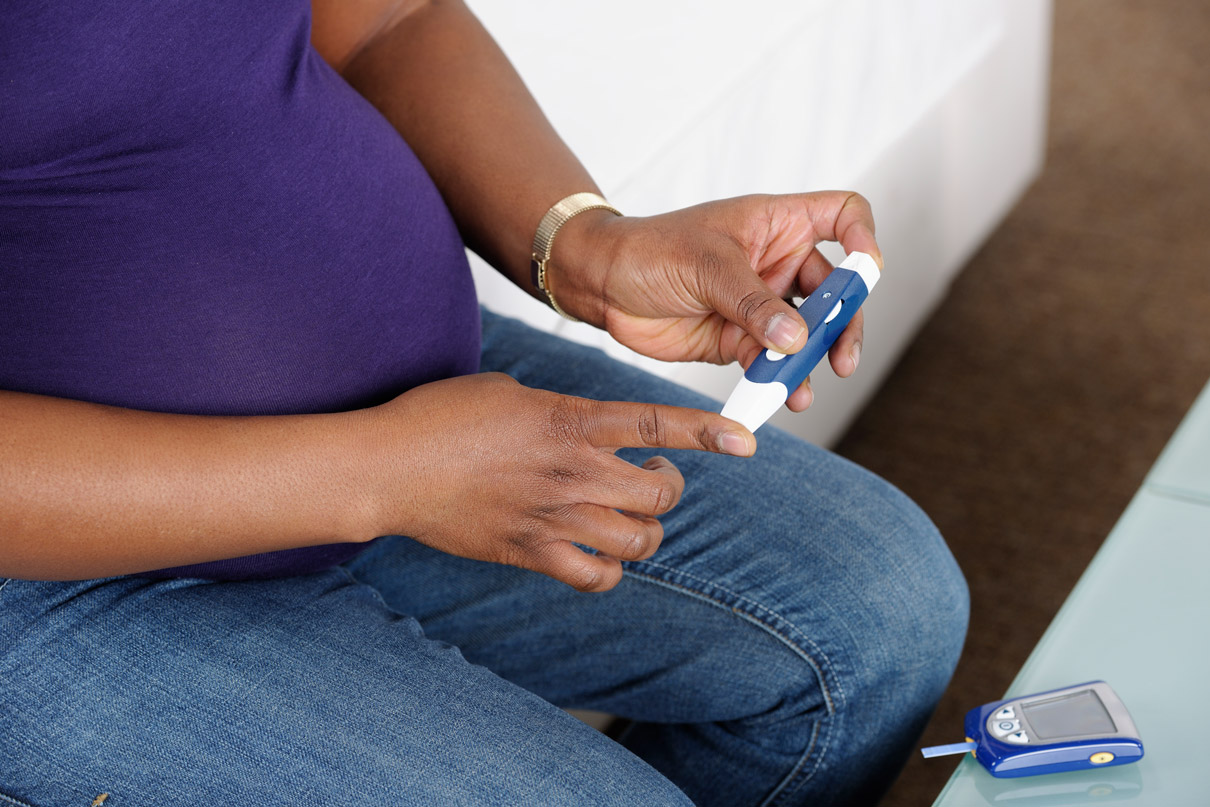I Have Diabetes. If I Get Pregnant, Will my Baby be Safe?

Women who develop diabetes and then become pregnant raise their children’s risk of congenital heart disease (CHD).
What is CHD?
CHD is a problem with the heart’s structure which is present at birth. For the general population, CHD affects about one percent or one in every 100 births. In women who already have diabetes before becoming pregnant, that rate quadruples to four in every 100 births.
In the 1970s, pregnant diabetic women, in most countries, accounted for two to three of every 100 pregnancies. These days, this has increased to about six to 10 percent in the United States, according to recent studies. Due to lifestyle changes and the obesity epidemic, this number is on the rise. Doctors want women to know that if they plan on having a family, preventing diabetes by staying healthy and at a normal weight are critical to the health of their infants.
It doesn’t matter if the woman has Type 1 or Type 2 diabetes mellitus. Both raise the risk of CHD in their children. The risk also seems to be independent of whether you are on insulin or on oral medications. The research is unclear as to whether risk varies with whether their diabetes is well-controlled or not, with some studies suggesting better diabetes control can result in less chance of having a baby with CHD.
Dr. Sethuraman Swaminathan, a board-certified pediatric cardiologist with the University of Miami Health System explains: “We don’t know the exact mechanism by which diabetes increases this risk of the baby developing congenital heart disease, but based on animal experiments, high blood sugar in the embryo during the first two months of pregnancy may alter the gene expression in key cellular components of the developing heart, in particular, the outflow parts of the heart.”
The types of specific heart defects usually seen involve malformations of the vessels that come out of the heart, he says, which may result in less oxygen in the blood delivered to the rest of the body.
Interestingly, Dr. Swaminathan says, women who develop high blood sugar and diabetes in the second or third trimester of pregnancy (gestational diabetes) and then return to normal glucose levels after giving birth, do not have an increase in the incidence of congenital heart defects.
If you are diabetic and then become pregnant
The American College of Obstetrics and Gynecology recommends getting a screening fetal ultrasound focused specifically on the fetal heart structure, function and heart rhythm, called an echocardiogram in your second trimester, at about 18 to 22 weeks pregnancy. If CHD is identified in the fetus, you can be counseled regarding the management plan well ahead of the delivery. If the baby might need help soon after birth, your health care provider may refer you to a care center where there is 24-hour availability of cardiologists and a congenital heart surgeon.
“If you plan to have a family and are not diabetic, make sure you do everything you can to be healthy with a normal weight and good lifestyle to prevent the onset of Type 2 diabetes,” Says Dr. Swaminathan. “If you are already a diabetic, maintain your blood glucose under good control if pregnancy is anticipated.”
By combating the obesity epidemic, he hopes to reduce the incidence of type 2 diabetes mellitus in women of the child-bearing age group and thereby indirectly reduce the prevalence of CHD.
Tags: CHD, Congenital Heart Disease, Diabetes, Dr. Sethuraman Swaminathan, Pregnancy
